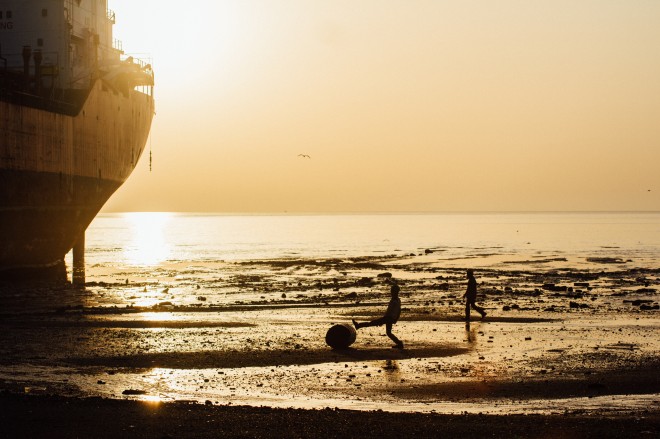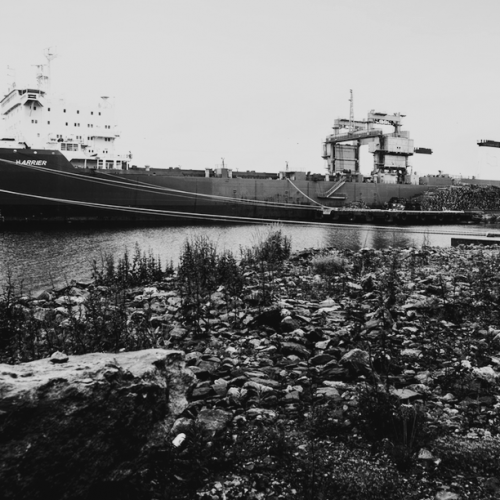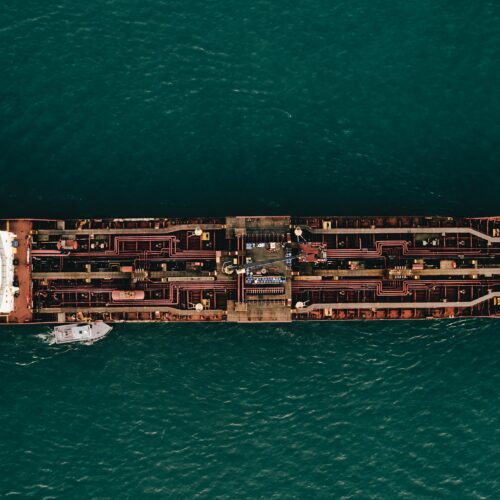Press Release – Maersk end-of-life vessels to hit the beaches again. NGOs denounce container ship company’s step back to boost profits
The NGO Shipbreaking Platform and Transport and Environment (T&E) denounce Maersk Group’s decision to beach their end-of-life vessels in India [1]. The world’s leading container ship owner was previously guided by a progressive policy on ship recycling: its old vessels were dismantled in modern ship recycling facilities in either China, Turkey or Europe. Maersk’s decision to resort to the low-cost beaching method in India undermines European efforts to improve global conditions and the company’s position as industry leader.

The Platform had welcomed Maersk’s initial idea to set up a long-term cooperation with stakeholders in India provided that the objective was to set up a modern ship recycling facility in line with the safety and environmental requirements set out by the European Ship Recycling Regulation. However, the hasty decision to sell off end-of-life vessels to Alang shows that the decision is merely driven by profits. In times of low freight rates, Maersk intends to boost its profits by selling to yards that do not comply with European standards.
All yards in Alang dismantle vessels in the intertidal zone. This means that ships are broken in an unprotected marine environment – a method which has been identified at the international level as one that needs to be phased-out and that European law has banned. Environmental concerns remain linked to the abrasion of toxic paints during the beaching process and when cut-off blocks and hulls are winched further up the beach, oil spills and the release of slag and paints chips into the water, and the debris created by the gravity method when blocks crash down on the intertidal zone.
Moreover, working and living conditions in Alang remain inadequate. The lack of decent accommodation will not be solved before the first Maersk vessels arrives in Alang, nor will there be access to a proper hospital specialised in accidents and burn wounds. Maersk seems also to ignore the lacunae of proper downstream waste management in India: asbestos-containing materials can and are re-sold freely and PCBs cannot be properly destroyed. These issues are not dealt with by the Hong Kong Convention - for European Union approval these problems will however need to be addressed.


NOTE
[1] Maersk has stated in Danish press that several of their ships will be sold to the beach of Alang in the coming six months.
Related news

Press Release – The hypocrisy of better beaches: winners of the “Public Eye Investigation Award” shed light on shipbreaking in Alang and Swiss companies’ involvement
Gie Goris and Nicola Mulinaris received Public Eye’s “Investigation Award”.
... Read More
Platform News – Investigations ongoing after Norwegian authorities press charges against owners of Harrier
The HARRIER is still under arrest in Norway after its owners failed to illegally set sail for the dangerous and dirty scrapping yards in Gadani, Pakistan, last… Read More

Press Release – NGO Shipbreaking Platform presents Annual Report 2017
The NGO Shipbreaking Platform presents its Annual Report 2017. The NGO Shipbreaking Platform works to ensure that vessels are recycled without causing harm to workers and… Read More

Press Release – Local residents rally against shipbreaking operation in Union Bay, British Columbia
Local residents marched last Sunday at Union Bay to protest against the dirty and dangerous scrapping operations carried out in the area by Deep Water Recovery Ltd (DWR).
... Read More
Press Release – Investigations on the Harrier tighten as it reaches Turkey for recycling
Norwegian press DN revealed this summer that Aqualis Offshore and insurance company Skuld Maritime Agency are under investigation for their involvement in the attempt to illegally export… Read More

Press Release – UAE takes important steps towards sustainable ship recycling
Set to take effect from June 2025, UAE new legislation brings about a ban on the beaching and landing of UAE-flagged vessels as well as all foreign vessels leaving or transiting through UAE waters enroute to scrap yards.
... Read More

